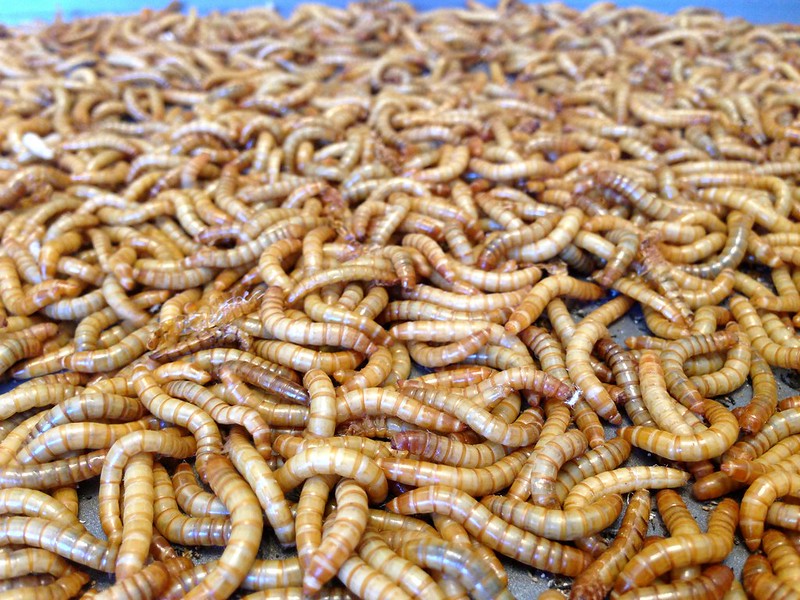The European food authority EFSA has approved mealworms (Tenebrio molitor) as the first insect for human consumption. Will 2021 be the year of the mealworm breakthrough in Europe?
They are rich in protein, fat and fibre and already used in animal feed. Soon mealworms may also be part of the European diet. The European food authority EFSA announced the decision for aloowing their use in, for example, curries, biscuits, pasta or bread.
Mealworms slowly gain ground on the European market
These safety assessments are a fundamental step for new foods. Scientific advice underpins the decision making process for authorising products for the European market. According to EU procedures, the European Commission now has to submit a draft proposal to the Member States for authorisation of mealworms.
AESAN supports further research
According to the EFSA, it is safe to eat mealworms, although, like crustaceans, they can cause allergic reactions. EFSA would like to see more research. AESAN, the Spanish Agency for Food Safety and Nutrition, agrees, stating “the applications of novel foods are so varied that scientific knowledge is needed in many areas such as nutrition, toxicology, chemistry and microbiology. This is specifically the case with insects, as they are such complex organisms. Understanding their microbiology is of paramount importance, also considering that the whole insect is consumed.”
United Nations
The Food and Agriculture Organisation of the United Nations (FAO) has for many years stated that insects are an important and accessible source of nutritious food, rich in protein. Sustainable production and their nutritional profile are two arguments for giving them a chance.
Worldwide, insects already form part of the diet of at least 2 billion people. In countries such as Mexico, Colombia or Thailand, consumption is already common. Mealworms are part of the traditional gastronomy of certain regions, just as shrimps or snails are in Spain. For many Spaniards, the idea of eating the insects arouses aversion.
The opinion of a Spanish nutritionist
The question is whether the consumption of mealworms is really necessary in Spain. “We have legumes, protein sources of very good quality and with low environmental impact. Therefore, insects are not needed at the moment as an alternative to other animal proteins”, explains dietician and nutritionist Beatriz Robles.
She states that “it is interesting to consider eating mealworms because of the important benefits. Mealworms can be an industry to revitalise rural areas, they are very sustainable (they need twelve times less food than a cow to form the same amount of protein), they take up little space, and from a nutritional point of view they are a good source of protein, vitamins and minerals…”, Robles adds. She further states “insects, like other new sources of protein such as cultured meat, are a good alternative if we are to reduce the consumption of food of animal origin.” But, “if we eat mealworms alongside other foods derived from animals, it doesn’t make much sense,” Robles concludes.


